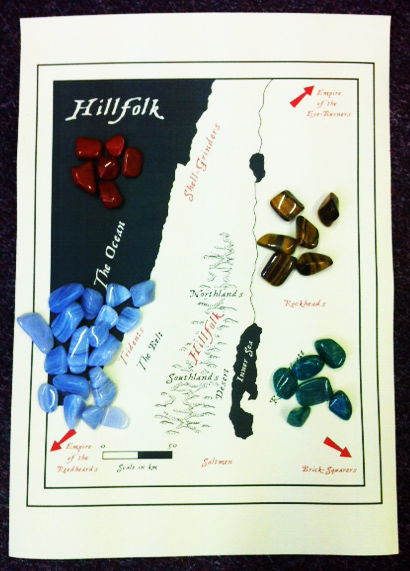 Over on the Twitter, Jack Of Spades asked why DramaSystem uses cards instead of dice.
Over on the Twitter, Jack Of Spades asked why DramaSystem uses cards instead of dice.
The answer is that as soon as you have dice in your resolution system, you have numbers on your character sheet. Since DramaSystem presents a new play style revolving around the way emotional interactions occur in fiction, I wanted to help gamers jump into it by pulling them out of familiar territory.
In the game (for those of you who have yet to sign onto the Hillfolk Kickstarter and get their playable draft copy), cards come into play only in the type of scene the game de-emphasizes. That’s the procedural, in which characters exert skills to complete external, practical tasks. In other words, the kind of scene we’re used to going to in roleplaying games. As they acclimate themselves to DramaSystem, most groups find themselves going to procedural less and less, invoking it only when it really matters.
As seen on its character sheet, DramaSystem is about the aesthetic of the word and not of the number. In fact, arithmetic plays essentially no role in game play itself. You may compare numbers but you’re never doing even simple math.
(An exception occurs in the post-play bookkeeping phase, when the GM takes a vote and tallies the results, to see which two players get bennies they can use in subsequent sessions.)
While we seasoned gamers feel comfortable seeing numbers on our character sheets—maybe even adrift without them—it’s my hope that the simplicity of the system will allow you to draw in people who are interested in story but never put the words math and fun in the same sentence. (For example, the current stretch pitch for the game, Andrew Peregrine’s Jane Austen tribute Vice and Virtue, might be the perfect vehicle to suck in your book club.)
That’s also why I simplified the already not-crunchy procedural system further after playtest groups found the initial version out of keeping with the game’s overall feel.

